Today’s customers want their problems solved right away. And when your business has robust, integrated customer service solutions, you can provide excellent customer service that meets your customer’s needs while being scalable for your business.
Customer communication is critical, and your business can create processes and systems to track all customer interactions to provide a stellar customer experience. There are many customer support software on the market, but which will work best for your business and customers?
In this article, we’ll look at customer service solutions and how you can streamline your customer relationships, solve customer issues more easily, and increase customer satisfaction by nurturing loyal customers.
Contents
- What is customer service software?
- Recommended customer service software and tools
- How does customer service management software work?
- Who needs customer service solutions?
- Features your customer service software tools should have
- Customer service team tips to increase customer satisfaction
- Using Idiomatic to complement your customer support solutions
- Request a demo
What is customer service software?
Customer service software helps your business better support its customers and increase customer satisfaction in a variety of ways. The best customer service solutions create a centralized system for customer service agents to deal with customer requests. They’re often integrated into your Customer Relationship Management (CRM) system.
Types of customer service solutions include:
- Helpdesk or ticketing system
- Knowledge bases
- Messaging apps
- Live chat software
- Chatbots
- Automation software
- Analytics dashboards
- Feedback surveys
- Social media support (via direct or private messaging)
Recommended customer service software and tools
You can provide personalized service to your customers and better manage customer information by using support tools like the following:
- Idiomatic
- Zendesk
- Salesforce
- Gorgias
- Qualtrics
- Delighted
- Gladly
- Kustomer
- Hubspot
- ClickDesk
- HeyDay
- Sprout Social
- Survey Monkey
1. Idiomatic
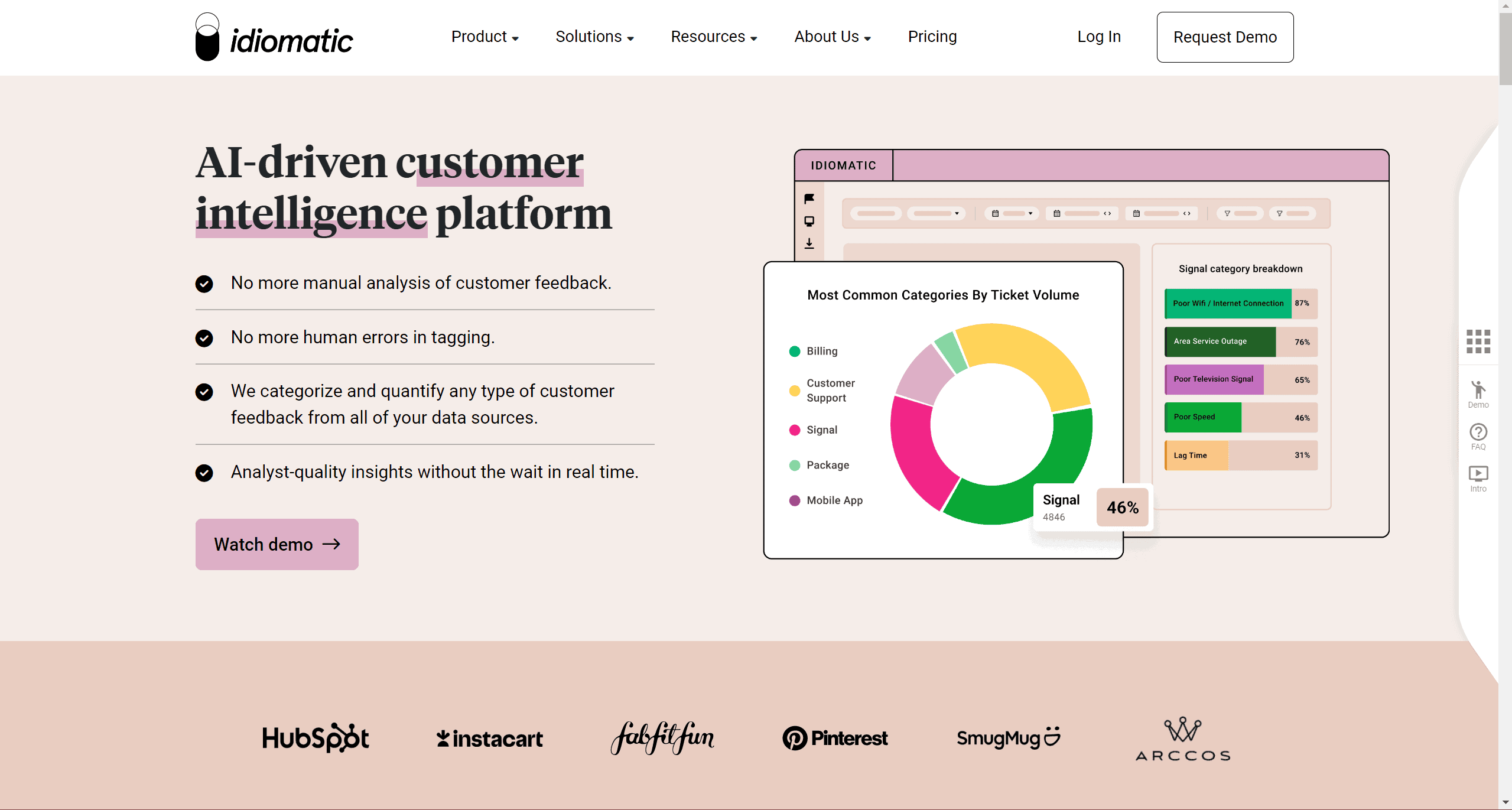
Idiomatic is an AI-driven customer experience platform that integrates with the following six tools below. With Idiomatic integrating into your various customer support tools, you can unlock the most valuable data from all your software databases to better understand the voice of your customer. Your team can get real-time alerts when sophisticated machine learning algorithms notice trends in negative sentiments or keywords hidden in verbatim customer comments. With this real-time data, you can fix bugs, change messaging, and provide a better customer experience.
Learn more about Idiomatic as a customer experience platform.
2. Zendesk
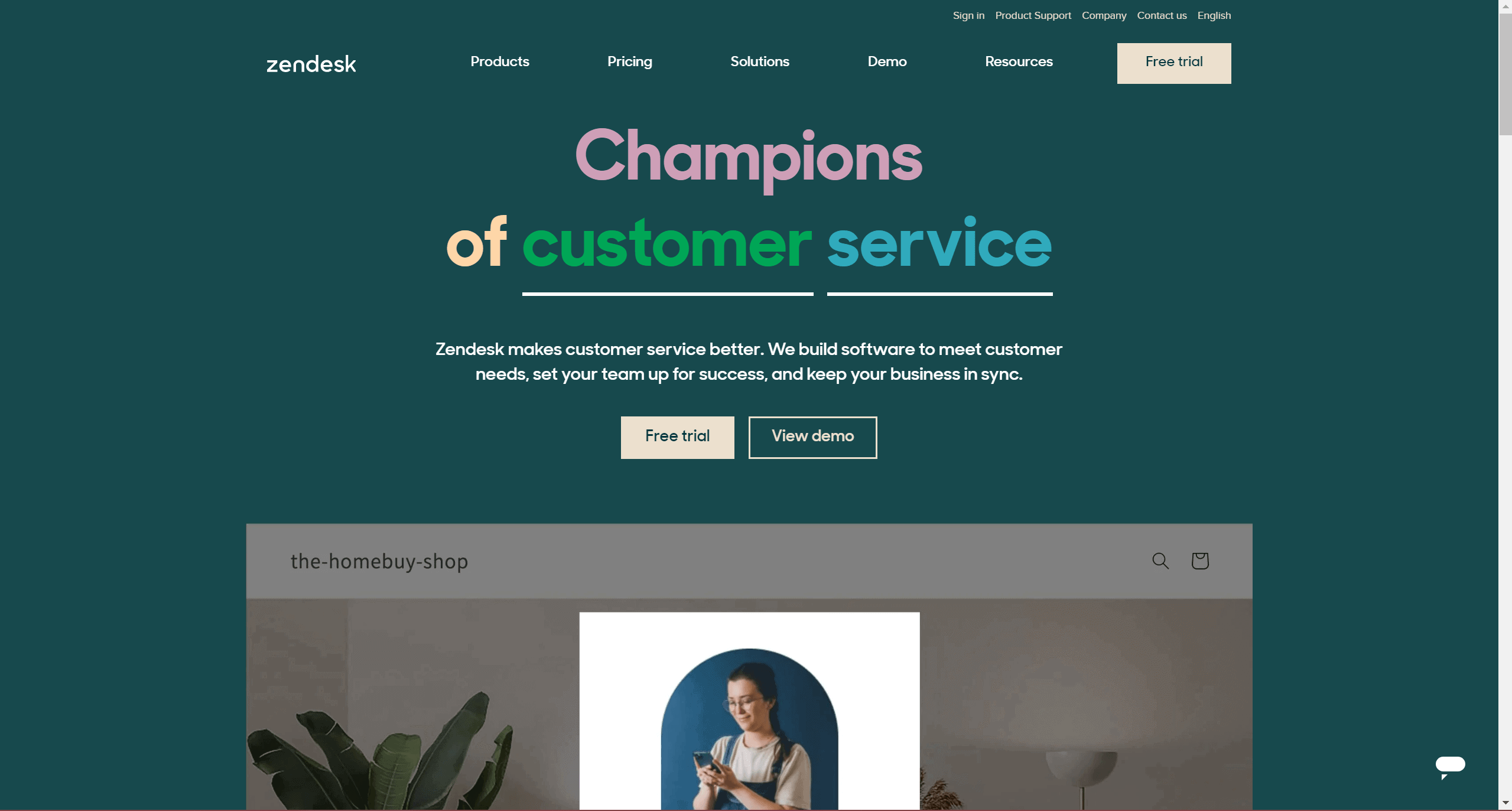
Zendesk empowers businesses to build effortless experiences with their customers. Your agents can manage conversations across multiple channels, so they always view the latest customer data and conversations. It also provides an easy-to-use agent workspace so your team can easily share and access information.
3. Salesforce
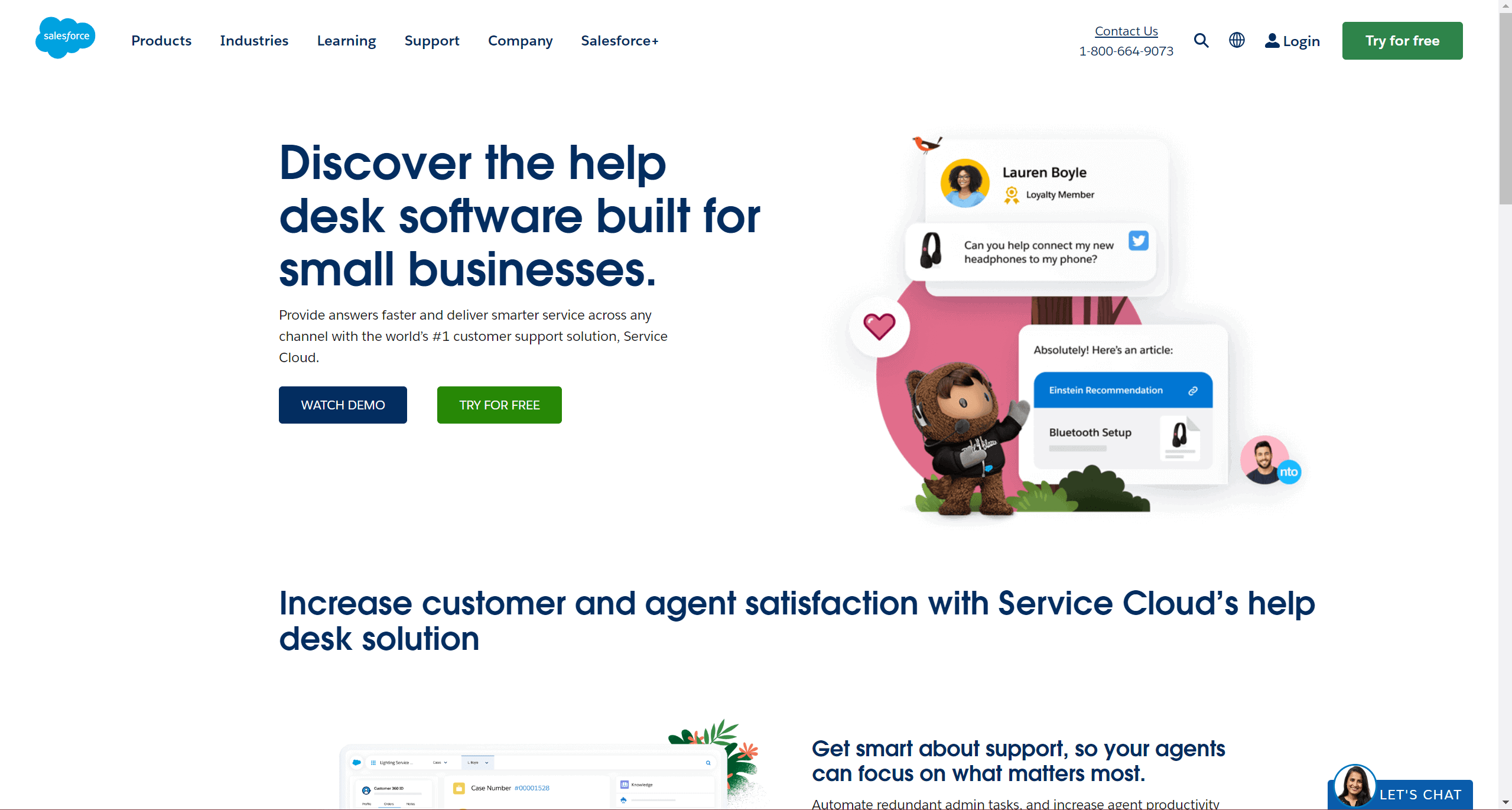
Salesforce is a popular CRM platform with an integrated helpdesk and ticketing system. It’s designed for small and large businesses and helps automate redundant admin tasks and increase agent productivity. It gives agents a 360 degree view of your customers to support them at scale, and connects with many other outside systems, customer support, and customer intelligence tools (including Idiomatic).
4. Gorgias
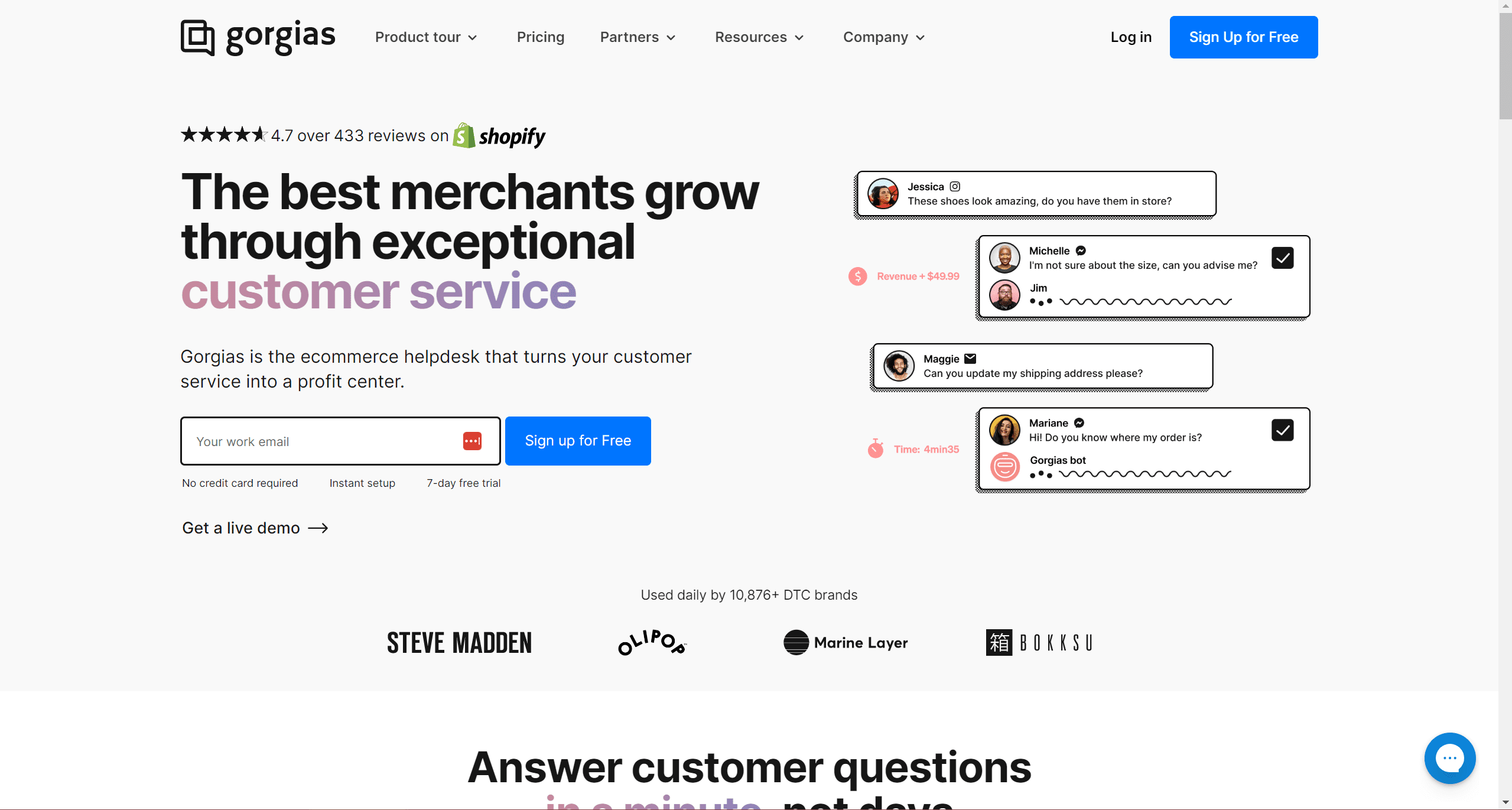
Gorgias is optimized for businesses with online stores. Customers browsing your store who have a question about the product can quickly reach your support team through this integration. You can centralize your support queries within this interface to respond to customer queries faster, giving them the information they need to make their immediate buying decision.
5. Qualtrics
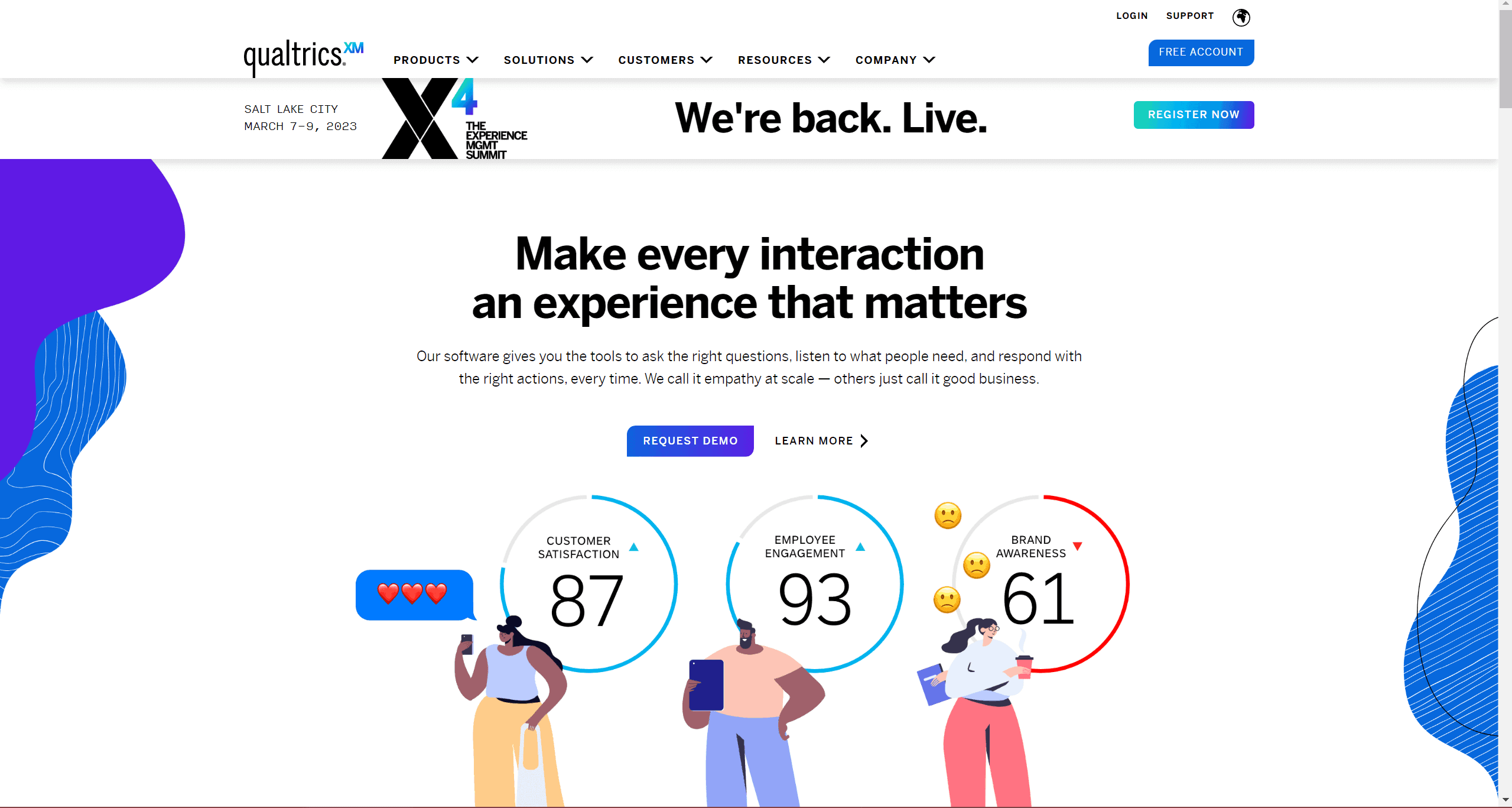
Qualtrics helps you increase customer satisfaction, employee engagement, and brand awareness through its customer experience platform. It includes the tools to learn more about the Voice of the Customer. It excels at intelligent workflows and automation triggers and processes, so customer queries get where they need to be quickly and accurately.
6. Delighted
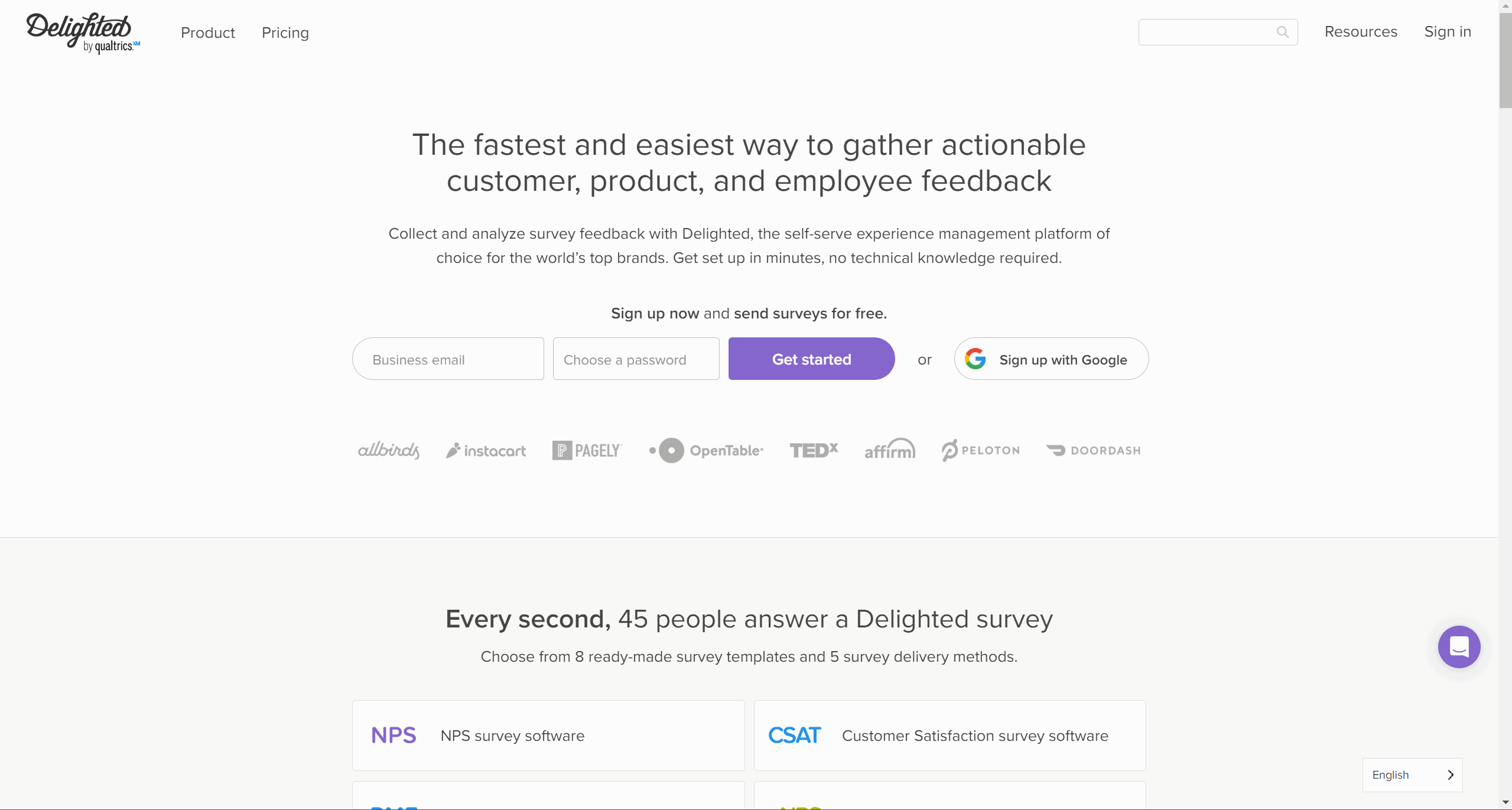
Delighted (a Qualtrics company) specializes in collecting customer feedback through surveys. They have ready-made survey templates for all types, including (NPS, CSAT, PMF, eNPS, CES, and more). Not only does it help collect data through APIs, automation, and manual distribution, but it provides high-level summaries of survey results so you can act quickly to address actual or perceived problems before they damage the reputation of your business.
7. Gladly
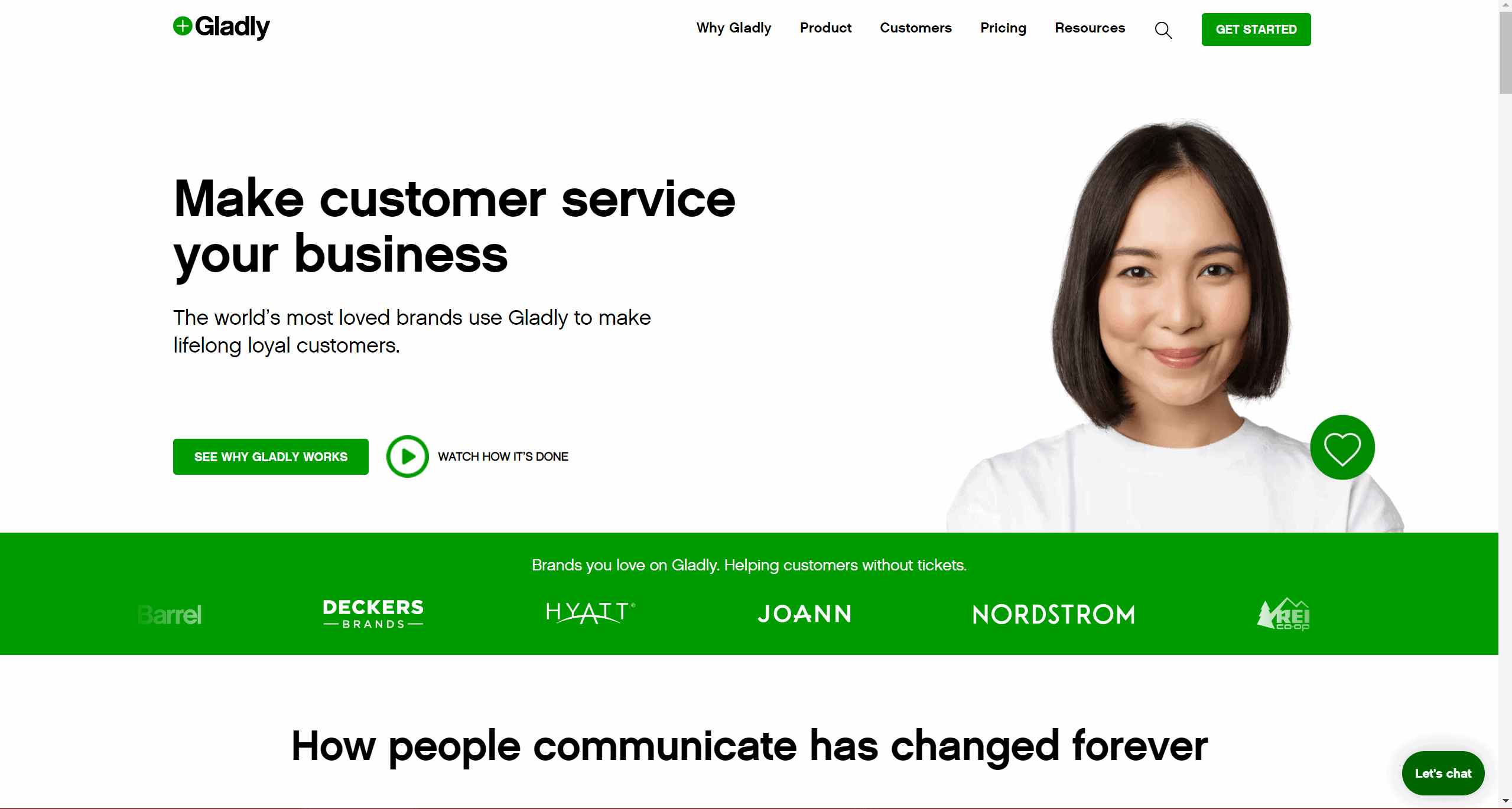
Gladly boasts the ability to help your customers without helpdesk tickets. They focus on helping you be more customer-centric to build brand loyalty through messaging, chat, voice, SMS, email, and self-service tools. With Gladly in your customer experience toolbox, you’ll streamline the personalization and efficiency of customer conversations.
8. Kustomer
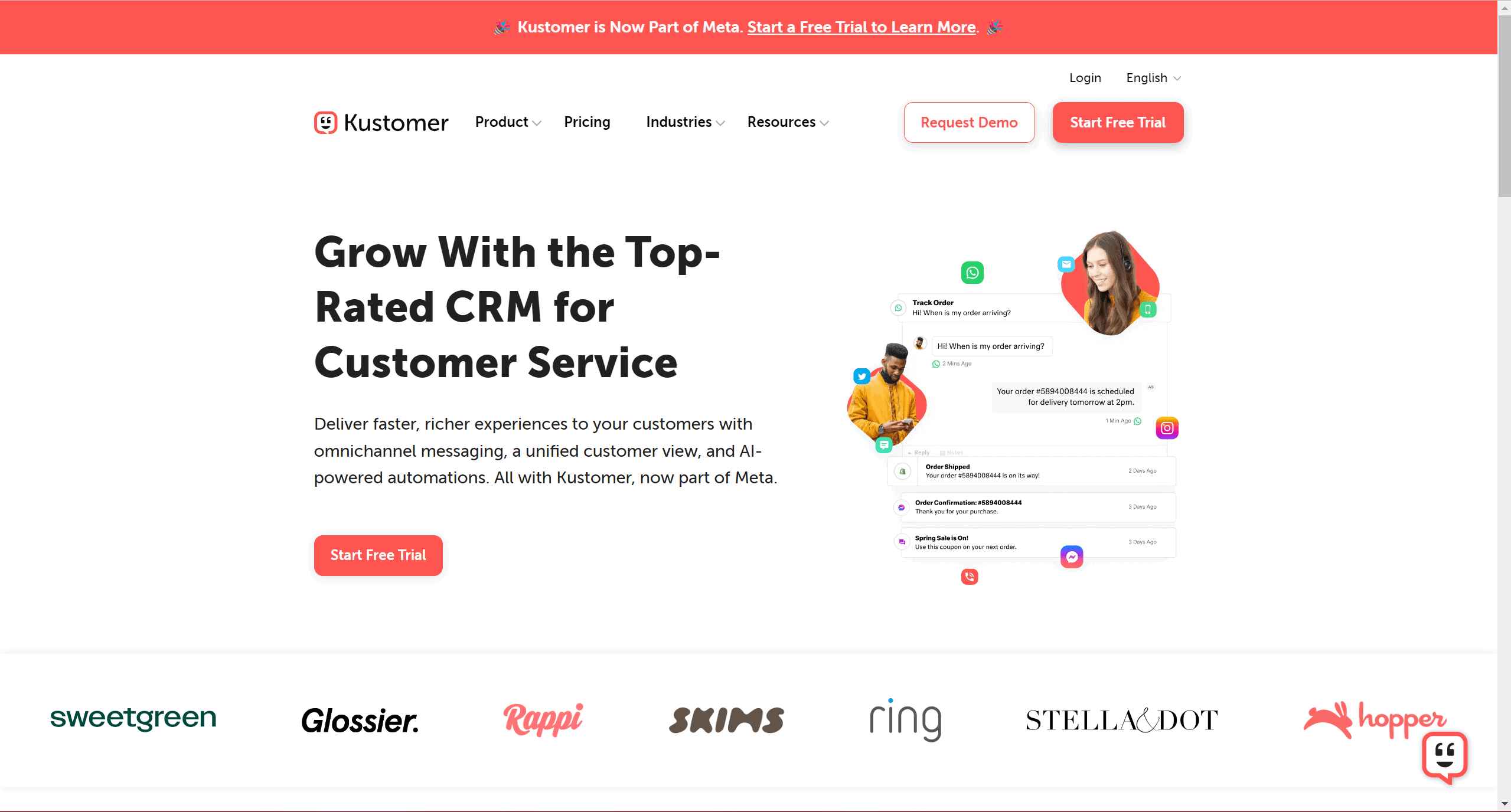
Kustomer powers a truly omnichannel experience for your customers. You can create AI Chatbots without writing a single line of code, unify your customer experience operations and automation, and help customers faster. They provide self-service, AI productivity features and a CRM to improve customer satisfaction.
9. Hubspot
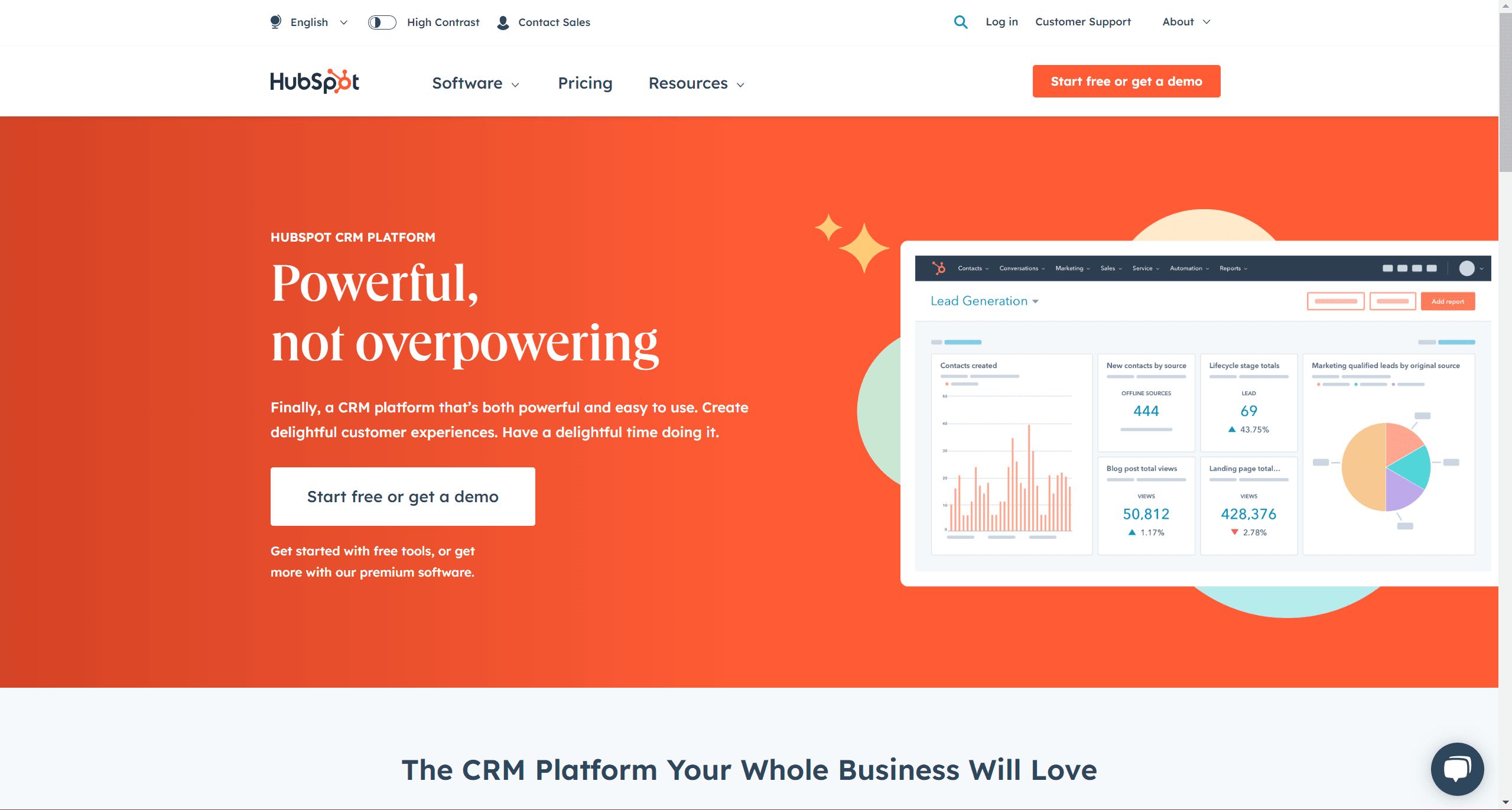
Hubspot has five different solutions or “hubs” for marketing, sales, service, CMS, and operations. Its Service Hub for customer support teams offers free tools like ticketing and ticket creation bots, live chat, and reporting, while its premium tools go further with automation, customer feedback surveys, and team management for enterprise level members.
10. ClickDesk
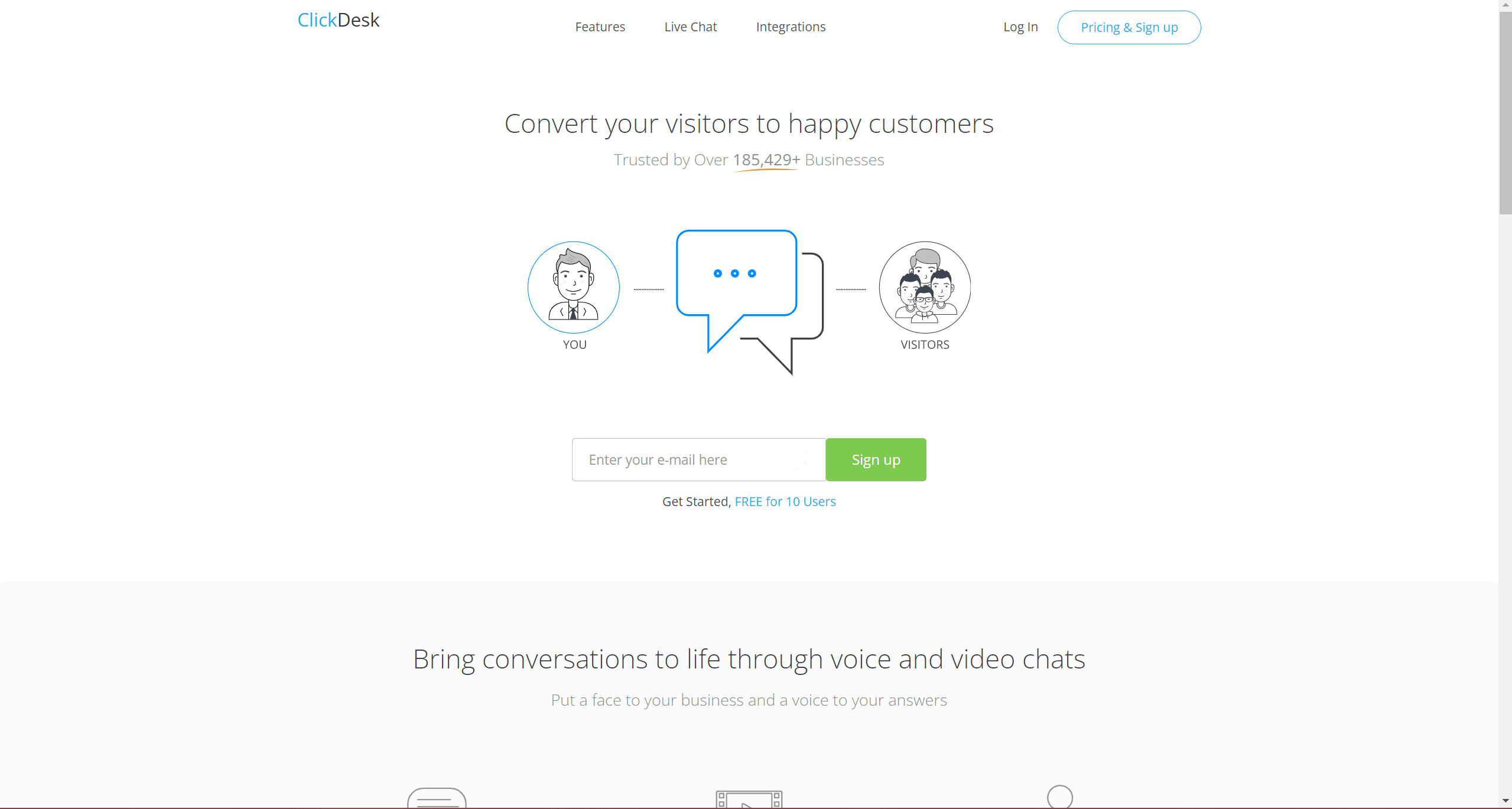
ClickDesk allows businesses to help customers through text, live chat or video chat. One interesting aspect of this software is the ability to see what customers are typing before they’ve pressed send, allowing agents to improve response time. For businesses that require lots of face-to-face nurturing or have a consultative sales approach, these could be powerful solutions to help prospective and existing customers. Their help desk software and social media integration allow you to combine both with their chat functionality to keep on top of conversations as well as increase social media traffic.
11. Klaviyo
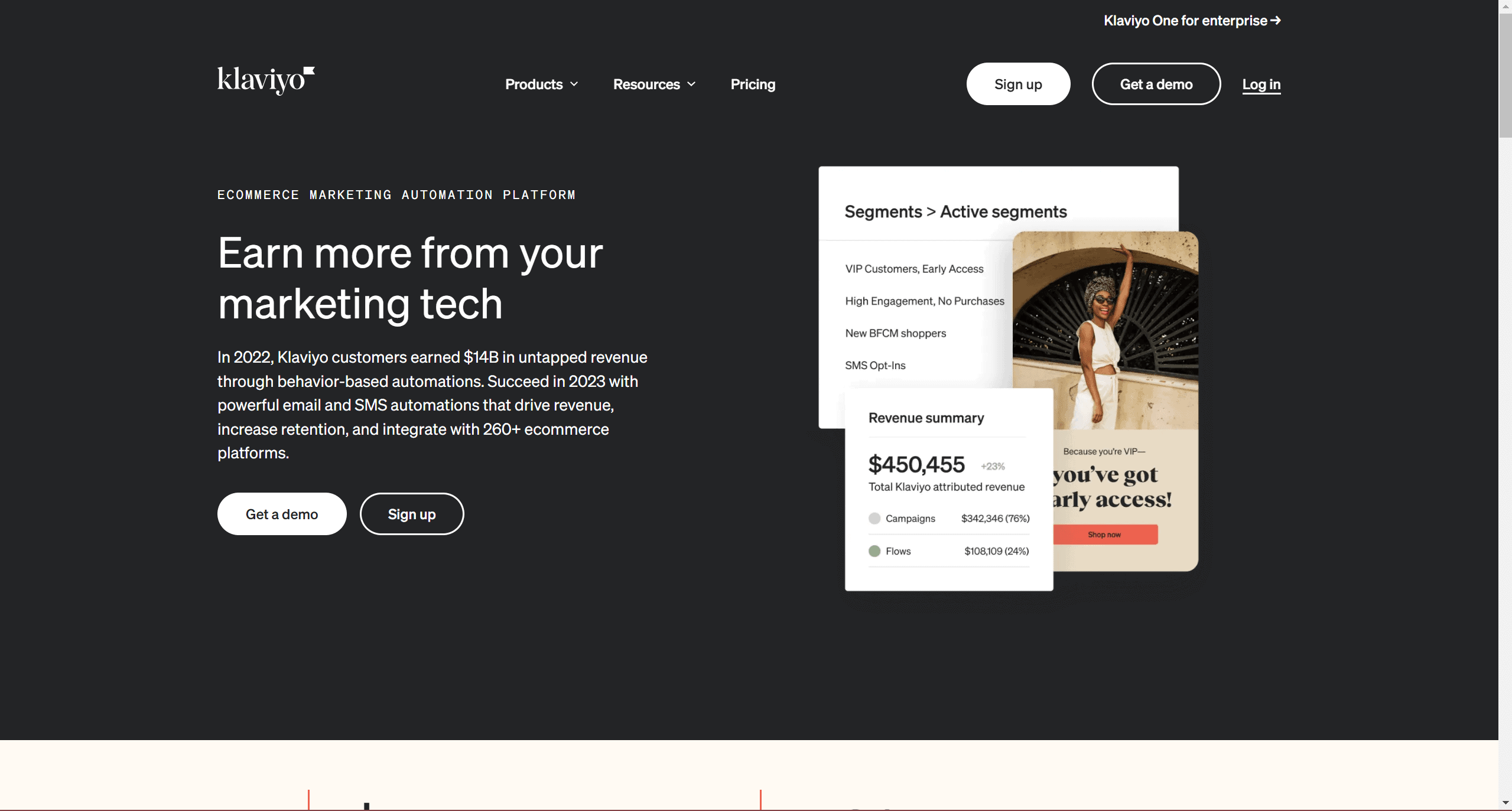
From small businesses to enterprise, Klaviyo’s email marketing platform allows you to build behavior-based automations to increase revenue and retention, integrating with over 260 eCommerce platforms. Klaviyo allows you to hyper-personalized campaigns and flows with robost profile fields and segmentation, as well as integrate with their SMS Marketing feature so both platforms work in tandem seamlessly.
12. Heyday
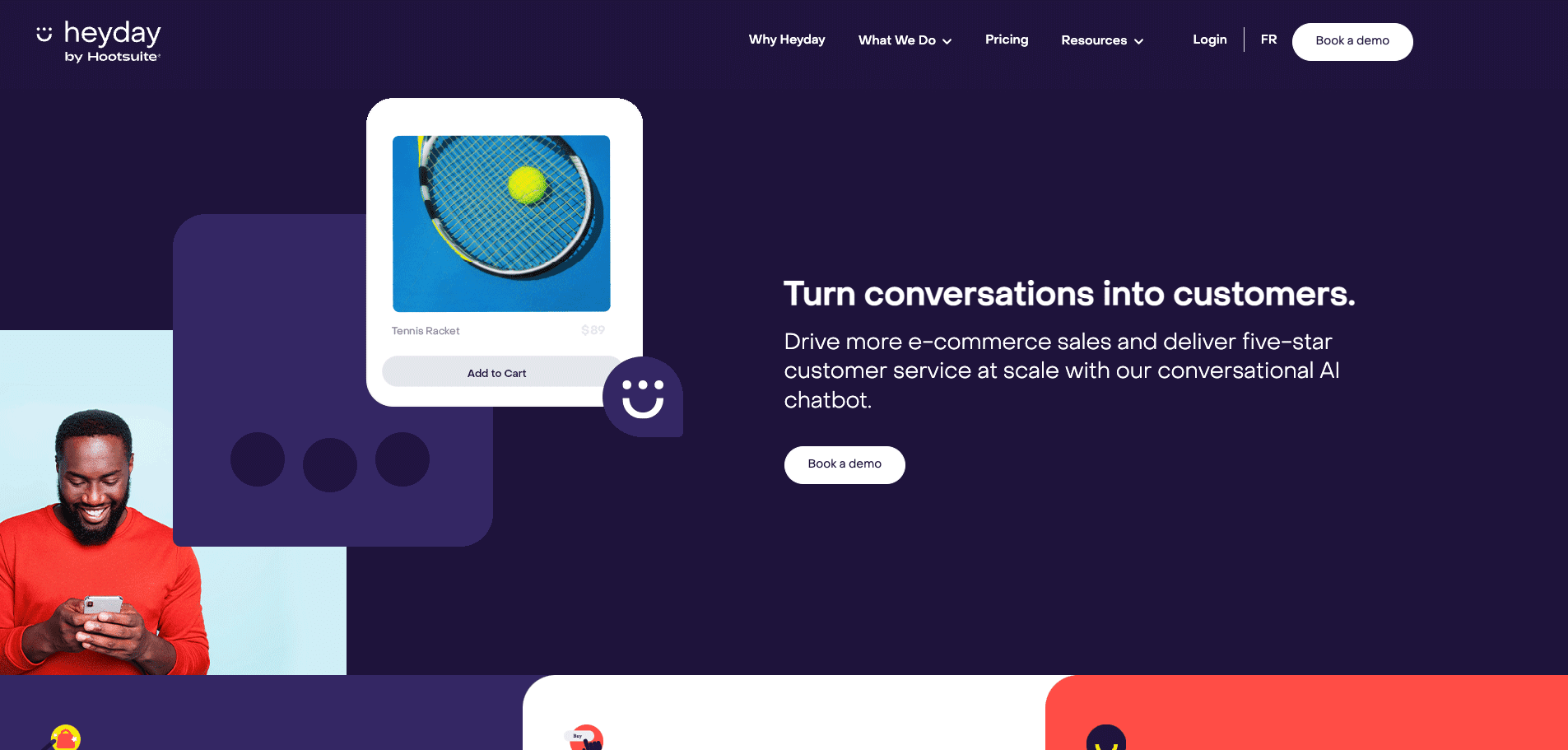
Recently acquired by Hootsuite, Heyday allows you to combine conversational AI with support agents to provide exceptional customer service at scale on social media. HeyDay connects with Facebook Messenger, Instagram, Whatsapp, and Google Business Messages and integrates with major eCommerce platforms like Shopify as well as over 780 shipping providers. This allows its AI to quickly and easily give your customers answers to common questions like their order status or order tracking.
13. Sprout Social
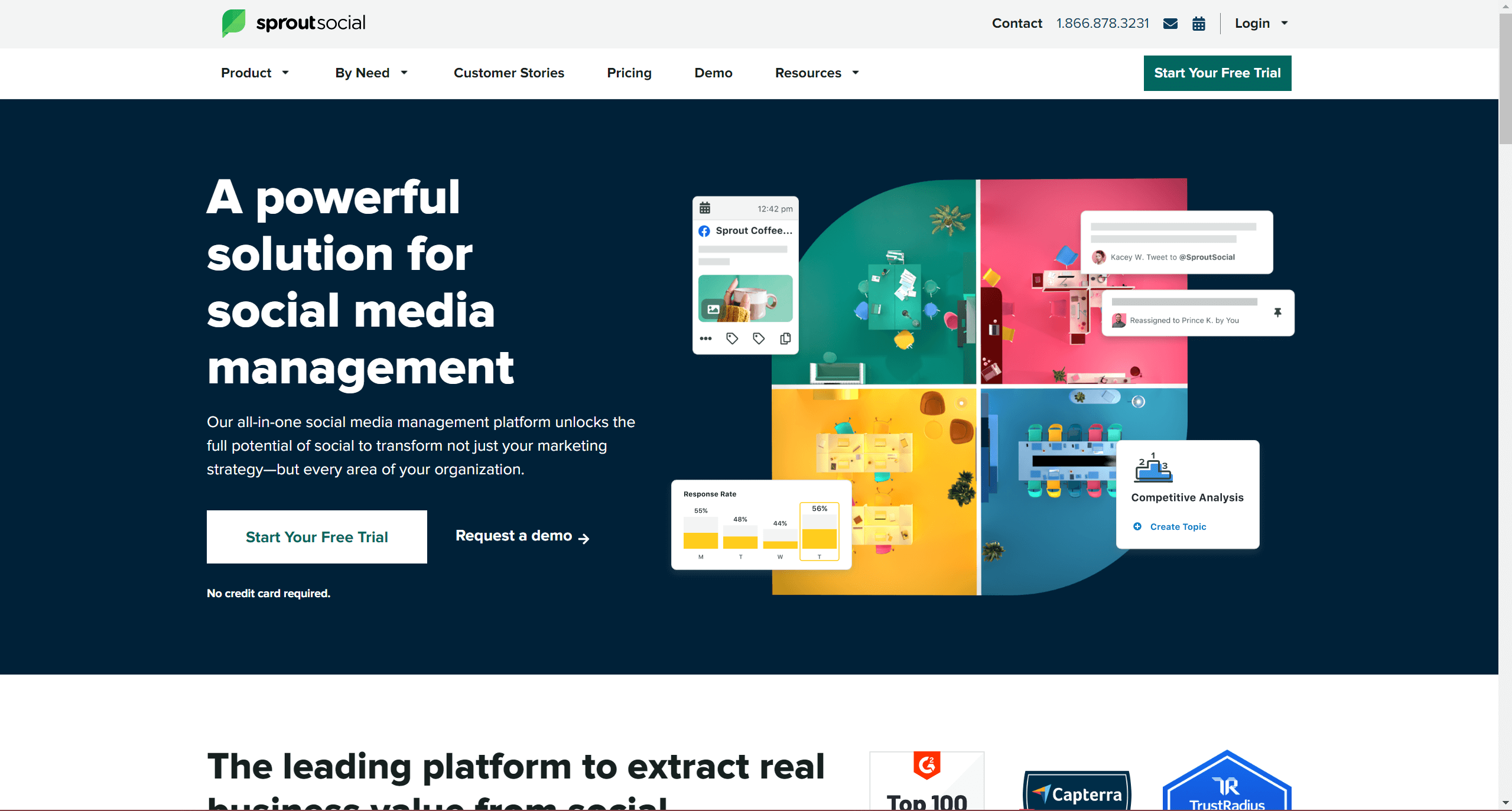
Sprout Social is another AI solution for social media management, with tools ranging from social publishing, listening, engagement, analytics, and more. Sprout Social connects social media teams with support teams allowing cohesive service across the board. For businesses for whom social media is a vital part of their strategy, a platform like Sprout Social can allow you to uncover blind spots in social support and leave a lasting impact.
14. Survey Monkey
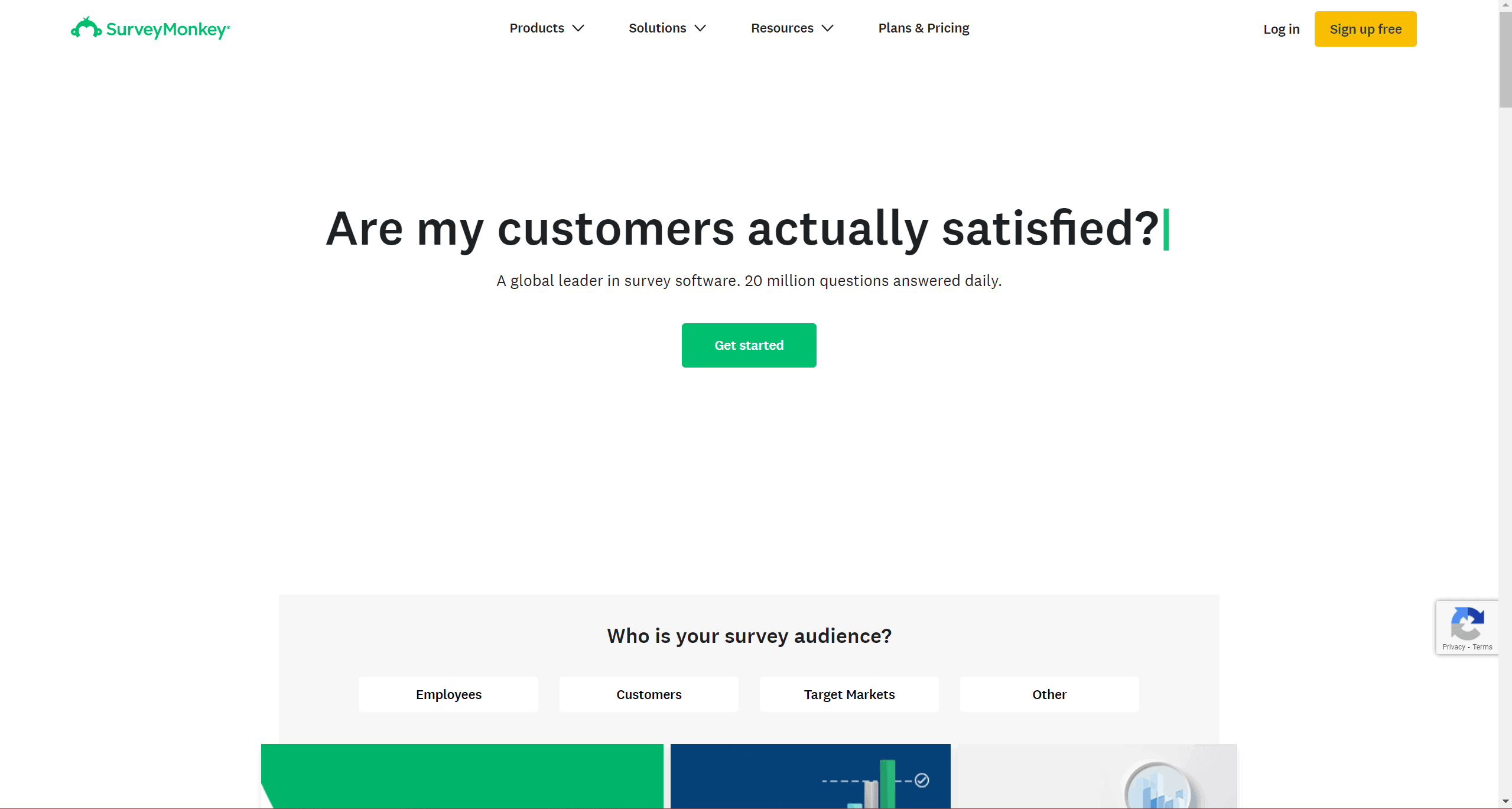
The more customer feedback you have, the more data you have to draw on when making business decisions. Survey Monkey allows you to gather feedback from customers for things like product feedback, CSAT, and NPS through various surveys. They offer a plethora of templates created by their experts to get started, and have a free version, which allows you to send unlimited surveys with up to 10 questions.
How does customer service management software work?
Customer service software solutions help your CS representatives solve customer inquiries as efficiently as possible through a centralized system. Many include automations, notifications of new inquiries, and integrations with other customer service, marketing, and sales platforms.
Your customer experience, product, marketing or customer service team can also use data obtained from customer interactions to better understand the Voice of the Customer (VOC). With the right customer services software, all customer data is linked, tagged, and accessible to your machine learning analytics platforms for easy analysis to better understand your customer’s needs in their own voice.
Who needs customer service solutions?
Businesses of all sizes, including small businesses, can benefit from a centralized customer service tool. It helps you better track and log customer inquiries to learn from them and make the necessary changes to turn poor customer service experiences into great ones.
These solutions are also beneficial if you have a complex business with large customer experience and support teams. It helps them stay connected and in sync, so customers experience the same great customer service, even if working with multiple agents over multiple channels.
Benefits of good customer service solutions
Your business will get many key benefits from implementing a robust customer service solution platform, including:
- Increased customer satisfaction and loyalty: Customers expect you to solve their problems in a reasonable amount of time. The faster you can solve their problem, the happier they become with your business. In fact, 76% of customers expect to engage with someone immediately upon contacting a company. If your CRM and customer service solutions are integrated, you can provide this level of personalized and quick service, no matter which support team member they talk to.
- Continuity in support: With a centralized customer service solution, your customer support team is in sync regarding every interaction a particular customer has had with your business. They can pick up where the last agent left off without asking the customer to explain their story again.
- Streamline customer service: Not every customer will pick up the phone when they need to talk to your business. Some prefer a web chat, email, or researching their answer in a knowledge base. You can provide and maintain several customer service solutions and have a larger centralized system to gather and store your data for streamlined analysis. (Idiomatic, for example, has over 20 pre-built integrations with popular customer service apps, and you can easily link it to others through its simple API integration).
- Supports business scalability: Scaling is much more efficient with the right systems and automations behind your business. A small business may have started its customer support logging on spreadsheets, but it becomes less sustainable as your customer base grows. With the right combination of software and processes supporting the customer experience, you can scale with ease, knowing your systems will scale with you.
- Optimizes resource allocations: Customers appreciate when you respond to their queries quickly. With the right automations, that first response can happen near instantly. If that first automation sends the customer a list of FAQs related to their query, often that can solve their needs without needing to engage with a real agent. This frees up live agents to support the more complex issues or VIP clients.
Features your customer service software tools should have
While you can use multiple systems, apps, and dashboards to manage customer support, ideally, you’ll want more robust solutions and integrations. Here are the top five features of the best customer service software and systems:
Ticketing or helpdesk system
This allows customers to submit requests for service or support, which are assigned to the right team member. Customers can look up ticket request statuses easily, and you can often use the same platform to communicate with the customer to request more information or provide them with the required solution.
Ticketing systems also make analyzing requests easy because every interaction is time-stamped and tagged.
Customer Relationship Management (CRM)
As we learned above, customers expect a personalized experience when they contact a member of your organization. This could be as simple as customer support agents addressing the customer by name when they call or knowing all details of their past interactions with your organization, so the customer doesn’t have to give the whole story every time they contact you.
This is also helpful as it relates to the product or service they purchase from you. For example, if you know they have a specific product, you can provide them with the information pertaining to that product immediately without needing to confirm what product they’re referencing. This helps speed up the process and provides that extra touch of personalization to the interaction, which your customer will appreciate.
Email management
With a support or help desk email system integrated with your other analytics and customer support systems, you can better manage and tag conversations to specific customer files for easy access by any customer service team member. The most robust email management systems will allow you to add internal notes, assign tasks or tickets, and set automated replies and follow-up emails.
Self-service portals
Empower customers to find their answers. For customers with common queries, provide solutions in a self-service portal like an FAQ page or knowledgebase. With the correct tagging and a powerful search capability, customers can search and likely find their answers without engaging with a rep.
Real-time communications
Have options for real-time communications like a chatbot, live messaging, video, or phone support channels. Look for a customer service program that can provide transcripts and back-end tagging of these conversations for future analytical reference so it can be linked to a customer’s CRM profile.
Data analysis
Your customer service solution may collect data, but you’ll need to analyze that data to produce actionable insights and next steps. A platform like Idiomatic will take data from all your customer service and feedback platforms and analyze it to look for common issues and trends. This allows you to make data-informed business decisions to improve the customer service experience.
Customer service team tips to increase customer satisfaction
Just because you have the right customer service software doesn’t automatically mean it’ll positively impact your business and customer loyalty. Here are our best practice tips for effectively integrating customer support software into your business operations:
- Omni-channel support: Provide the support channels your customers need, and give them options. These could include self-service options (FAQ pages), real-time conversations (live chat support software and phone support), and other convenient ways (like social media platforms) for customers to contact you on their terms.
- Personalize where possible: The better integrated your customer conversation software is, the more opportunities you have to personalize the experience. Address customers by name whenever possible, and don’t ask them questions that you already have answers to based on past conversations, purchases, or interactions with your brand that have been tracked in your linked databases.
- Collaborate: Make it easy for all team members to collaborate. Knowing whom to refer a query to can make a big difference in solving customer issues effectively. Working collaboratively may also uncover new processes or ideas to create additional opportunities to optimize customer relationship processes and conversations.
- Have a customer feedback analytics dashboard: You’ll likely use multiple online tools to manage customer relationships and support issues. Ensure they’re all integrated and linked with a powerful, AI-driven customer experience management platform like Idiomatic. It can help you generate actionable insights from your customer feedback to drive changes that matter to your customers.
Using Idiomatic to complement your customer support solutions
Choosing the right customer support system can be confusing. As we’ve mentioned, there are many options, and each has its strengths; however, you can elevate the customer experience and improve customer satisfaction when you use them together and pair them with powerful analysis.
Using customized machine learning algorithms, Idiomatic can provide you with a data-driven view of your customers so you can make business decisions to better support your customer journey and grow more loyal customers.
If you’re ready to integrate your favorite customer service solutions and get more actionable insights than ever before, ask us about an Idiomatic demo today.




